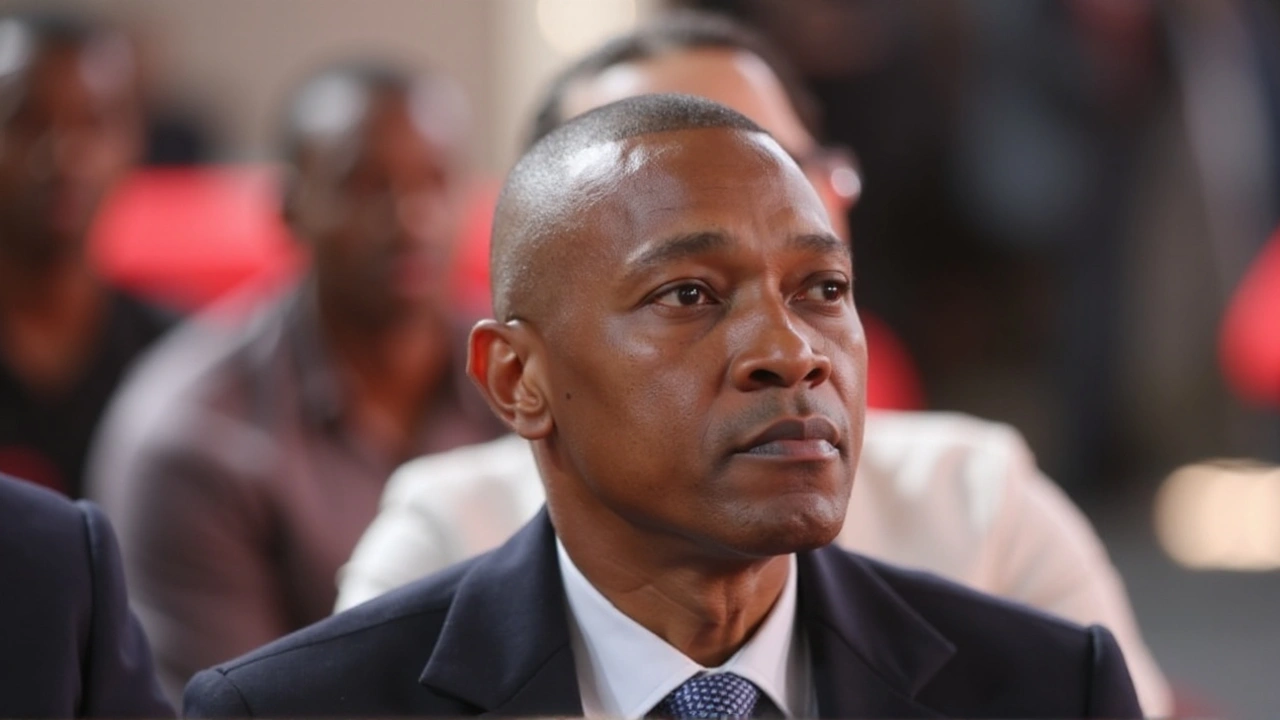The Arrest of Kabelo Gwamanda
In an astonishing development that has left the city of Johannesburg reeling, former mayor Kabelo Gwamanda was arrested on October 20, 2024. The charges are serious and have implications for both political integrity and community trust, as Gwamanda stands accused of orchestrating a funeral policy scam. This alleged scam dates back to 2011 and preyed upon the residents of Soweto through his business, iThemba Lama Afrika. The gravity of these accusations is compounded by the fact that Gwamanda was serving as a public official, highlighting the intersection of politics and personal ventures.
The arrest followed an investigation by the Financial Sector Conduct Authority (FSCA), which found that Gwamanda operated his funeral services business illegally, drawing in unsuspecting clients who would later find themselves at a loss—quite literally. Living in Soweto and purchasing what they believed were valid funeral policies, these residents paid monthly premiums. However, when these clients sought to exercise their policies, they found that they could not trace the business’s offices, leaving them without recourse. In a cruel irony, many victims discovered Gwamanda’s prominent political role through their own investigations, recognizing him from news broadcasts and public appearances.
The Origins of iThemba Lama Afrika
Gwamanda's ventures into the municipal arena were not his first attempts to impact his community, although this time under a benevolent guise, as proposed by iThemba Lama Afrika. The company’s mission allegedly aimed to provide essential funeral insurance to low-income residents, addressing a fundamental need for financial security during times of loss. Yet, beneath this façade lurked a more sinister agenda. For affected residents, the emotional and financial distress has been immense. They bought policies that promised dignity and support during their most vulnerable times, only to discover the promises were empty. Funeral scams take advantage of cultural and familial values, making them particularly egregious offenses that resonate deeply within communities.
FSCA Investigation and Findings
The FSCA investigation revealed the true nature of Gwamanda's operations, highlighting not only the absence of legal registration but also the complete disappearance of funds intended for policyholders. Instead of maintaining an ongoing service structure, Gwamanda allegedly exploited the trust placed in his business, diverting funds for personal use and abandoning his obligations. The case acts as a poignant reminder of the importance of regulatory oversight within financial sectors, especially concerning insurance and assurance markets that fundamentally rely on consumer trust.

The Role of Al Jama-ah and Political Fallout
As a prominent member of the Al Jama-ah party, Gwamanda’s arrest carries broader implications beyond personal misdeeds, extending into the viability and credibility of political parties in ensuring their candidates adhere to ethical standards. At the time of his appointment as mayor, assurances came from party officials, such as the ANC regional secretary Sasabona Manganye, about his clean record. Following the revelations, there is mounting pressure on the political establishment to reassess their vetting processes. How was a man who purportedly bilked constituents placed in a position of leadership and public trust? It is a crucial question that demands answers.
The party, previously defending Gwamanda, now faces scrutiny over their part in his rise to power. As with any political scandal, potential ramifications can ripple through upcoming elections, altering voter confidence and engagement. Public outcry over perceived oversights could prompt reforms within party structures, particularly around candidate evaluation and accountability measures.
Community Impact and Future Steps
For the residents of Soweto, this revelation has a visceral impact—a betrayal by someone they once trusted implicitly due to the perceived authority and compassion of his office. As families come to terms with being deceived, there is a concerted call for justice and recompensation. The emotional toll and financial loss impact community stability, increasing calls for the administration to provide support and solutions to affected families. Implementing robust and transparent processes is vital to restoring shattered trust.
The FSCA continues to offer assistance in sorting through invalid claims and encourages others affected by similar scams to report such activities. As a society, grappling with the consequences of Gwamanda’s actions involves not only holding individuals accountable but also reinforcing systems to protect vulnerable citizens. This is a chapter in the city’s history that demands both closure for the victims and systemic reforms to prevent future occurrences. Hopefully, the conversations and reforms sparked by these events will pave the way for greater transparency and accountability in both business and politics.


Elizabeth Price
October 21, 2024 AT 17:41Steve Cox
October 22, 2024 AT 21:36Aaron Leclaire
October 24, 2024 AT 12:26Mitch Roberts
October 25, 2024 AT 03:15Mark Venema
October 26, 2024 AT 20:06Jasvir Singh
October 27, 2024 AT 11:31Brian Walko
October 27, 2024 AT 14:44Derrek Wortham
October 27, 2024 AT 16:16